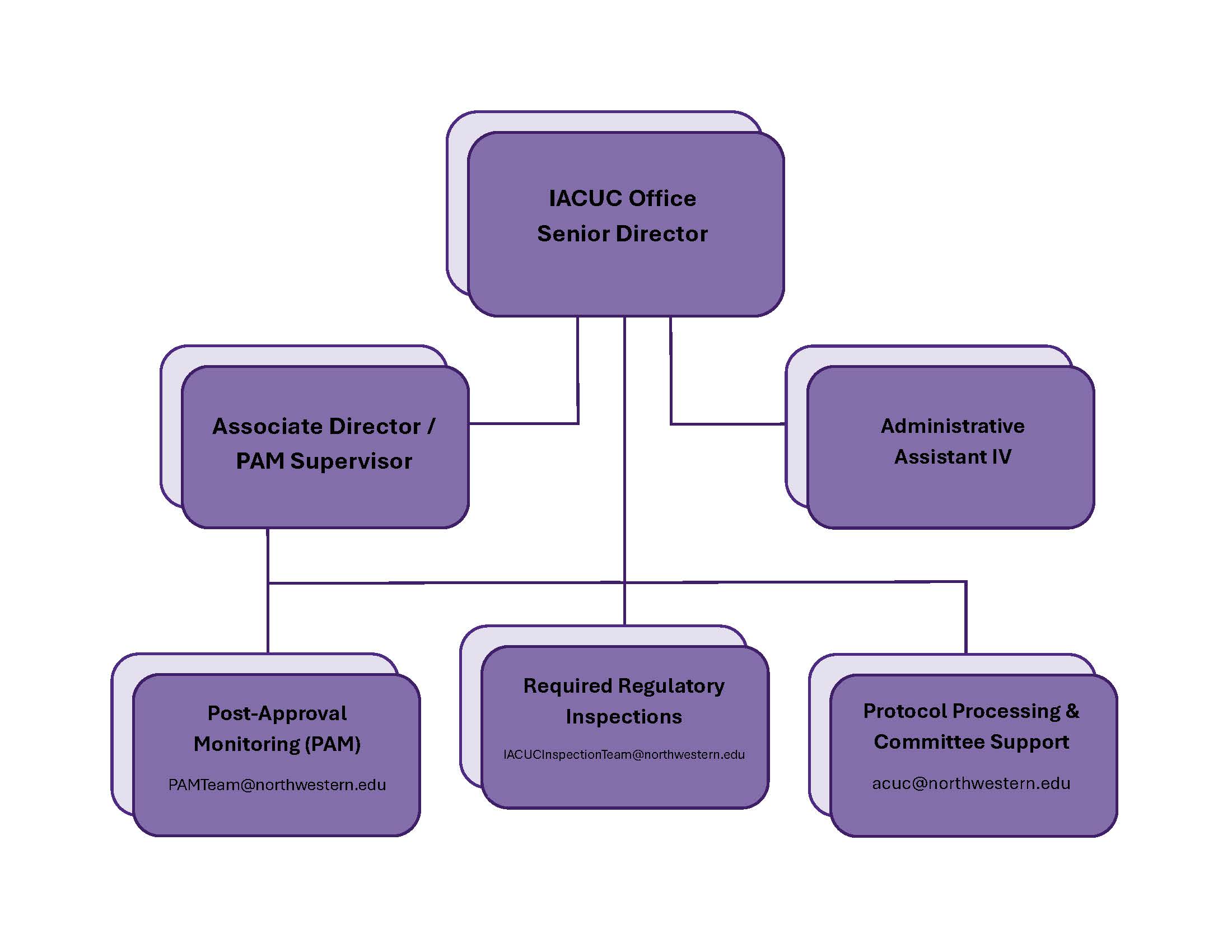About the IACUC Office
IACUC Office Mission Statement
The mission of the Institutional Animal Care and Use Committee (IACUC) Office is to foster an environment that supports high quality research and education with animals while ensuring Northwestern University’s animal care program is in accordance with all federal, state, institutional and accrediting requirements. With a focus on the highest standards of customer service, the IACUC Office supports the regulatory requirements of the IACUC (Committee) and serves as a liaison between the research community and the Committee.
IACUC Office Structure
The IACUC Office is divided into three different areas with unique responsibilities. Below is a chart of the office's structure, followed by each team’s mission statements.

Mission Statement for Protocol Pre-Review (PRT) and Committee Support Team
The IACUC Analysts support the federally mandated requirement of the IACUC to review and approve protocol submissions. The Analysts pre-review and process all protocol submissions, ensuring compliance with all relevant IACUC policies, AAPs, forms, and guidelines. The Analysts serve as the liaison between the IACUC reviewers and research community with the highest standards of customer service.
Mission Statement for Inspection Team
The IACUC inspection team supports the federally mandated requirement of the IACUC to semiannually inspect all animal care and use spaces including CCM centralized and decentralized facilities, satellite animal facilities, and laboratory animal use spaces. This is in accordance with the Animal Welfare Act (AWA) and the Health Research Extension Act described in the Guide for the Care and Use of Laboratory Animals (commonly referred to as “The Guide”). Inspection teams may consist of committee members, IACUC-approved ad hoc consultants, IACUC Office staff, and/or CCM personnel. The goal of these site visits is to educate the research community regarding ever-changing regulations and processes, advocate for both laboratories and the IACUC, and help ensure the highest standards of animal care and oversight at Northwestern University.
Mission Statement for Post-Approval Monitoring (PAM) Team
The IACUC’s Post Approval Monitoring (PAM) Team reviews active protocols to ensure research is conducted in accordance with what is written and approved in the animal study protocol (ASP). The PAM Team promotes the program with a collegiate and informal approach. Additionally, PAM offers investigators (PI’s and/or research personnel) assistance and resources to successfully navigate IACUC policies, and processes.